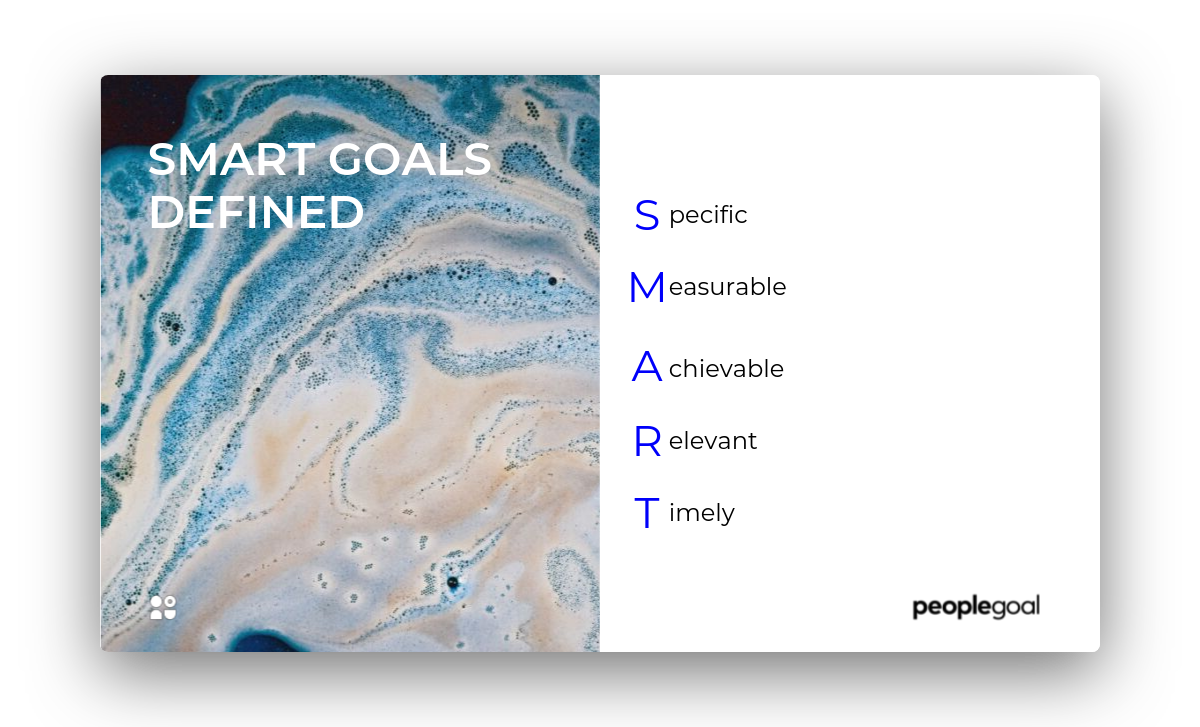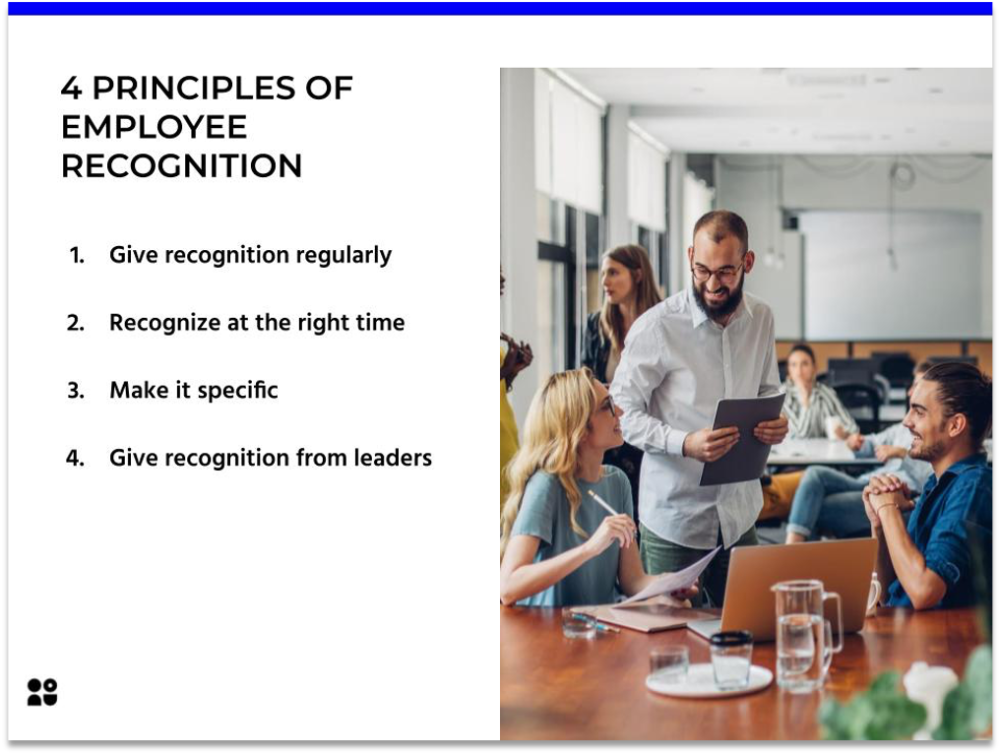Why do SMART goals matter at work?
For managers it is imperative to set SMART goals for their teams to boost productivity and enable the employees to set their individual goals in line with the team objectives. To do so, everyone in the organization must know what a SMART goal is, and thus you need to provide them with information and training. It is also essential to share the organizational goals so that everyone is on the same page with the direction of the company and can hold themselves accountable for their responsibilities.
Additionally, setting individual goals at work and seeing how one contributes to the company success can provide your workforce with a sense of purpose. If you want to find out more about the methodology, its impact and best practices, feel free to check out our Essential Guide to SMART goals!

Why should SMART goals matter to you?
Yes, we’ve all heard that setting goals is important. But to be honest, most of my life I didn’t believe in setting personal goals. I never really believed in New Year’s resolutions either. I couldn’t comprehend how writing down what I wanted to achieve in the following year – at work or at life in general – was going to actually help me to get there.
At work, like most of the other employees, I took setting goals as a check-box exercise that had to be done. I’d never look back on what I’d written until the time came for my performance review, and I never saw that setting goals is a chance to plan my own career development. How sad!
But then I reached a crisis during my studies and was asked by my tutor to set long- and short-term goals. Oh my… It was an absolute game changer. It sounds corny but setting goals really does guide your focus and allows you to challenge yourself to grow both personally and professionally. I had something to refer back to when I felt lost and it helped me become more productive, and develop effective routines and daily habits.
As easy as it sounds, setting SMART goals gets you from daydreaming about getting fit to actually going to the gym 3 times a week. And as I’ve mentioned before it’s especially important to set SMART goals for work in order to progress in your career.
In this article we bring you examples of SMART goals for work that will help you develop professional skills unrelated to your role. We’ve already addressed the topic if you are a nurse or a marketer looking for inspiration, or we’ve got you covered if you’re looking for examples of SMART goals for different roles in Sales, HR or leadership in general.
SMART Goals for Work Examples: Professional Development
- Complete a xx course to improve xx skills by the end of xx.
- Develop proficiency in xx software/tool to improve xx skills in the next xx months.
- Improve presentation skills through researching presentation techniques online and through free resources such as video tutorials and TEDex talks by the end of xx to improve efficiency of team meetings and reduce the number of clarifying questions by xx%
- Familiarize yourself with other departments in the company through having a coffee/a tour once per month/week with one of the staff to improve overall knowledge of business in next xx months.
- Increase customer understanding by joining the customer team for a day per month in next xx months.
- Improve organizational skills and time-management skills by reducing the number of weekly meetings by x% by the end of the month.
- Set clear weekly deadlines to improve productivity by xx% and time-management skills by the end of xx.
- Improve team collaboration by setting up a communication tool or team communication guidelines for remote workers by the end of xx.
- Build up a professional network by attending one industry event per month and talking to xx individuals in the next xx.
- Improve industry knowledge by attending xx industry events by the end of xx.
Final tips
When setting SMART goals for work you should think about what you are aiming for. Based on where you want to get to you can define smaller steps and achievements to help you along the way. It’s also essential to assess your weaknesses and develop a strategy to minimize them. Be reflective and self-critical, but don’t beat yourself up if you aren’t progressing as fast as you would want to or if there is more to do than you expected.
One of my favorite talks on setting goals and a great inspiration is this presentation (but more importantly his approach and outlook to life) by Stephen Duneier. His enthusiasm and ‘can do’ attitude was a great source of motivation to me and hopefully will be to you as well!
Embedded content: https://www.youtube.com/watch?v=TQMbvJNRpLE
And as the comment under the video says;
“The secret to getting ahead is getting started!” – Mark Twain
Happy goal setting!
Ready to 3x Your Teams' Performance?
Use the best performance management software to align goals, track progress, and boost employee engagement.





